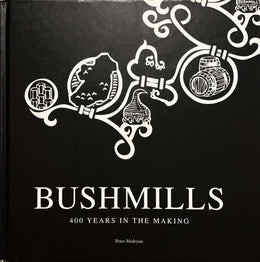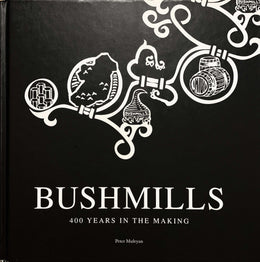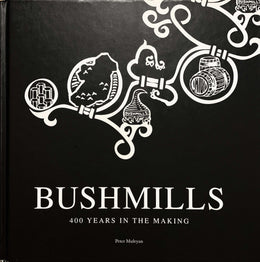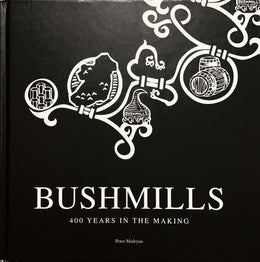Chapter 11: The Rousay Effect; “Orkney Stories: A specially commissioned collection by Highland Park”

Will Self is well-known as a sophisticated metropolitan novelist, author of The Quantity Theory of Insanity and My Idea of Fun. It might seem strange that he found inspiration on the quiet isle of Rousay —until the link between tides and dreams is revealed.
There are many places that you go to and hope, often devoutly, not to return. In my category of such destinations I include the Victoria Coach Station, Agra in India and, for some obscure reason, Rio de Janeiro.
But equally there are places you go to, perhaps only for a few days, and find yourself falling for. The atmosphere in these places penetrates your mind: you begin to construct an alternative history for yourself, one in which this place has played a significant role. One such place —for me —is the island of Rousay in Orkney.
I first went there in the Easter of 1992 for a week to stay with an English friend who has owned a house on Rousay for many years. I found the wind omnipresent, a combination of zephyr and sprite that managed to infiltrate itself into every nook and cranny. Even in April, to a southerner, the cold was gripping. But despite this I found myself so in thrall to the landscape of round, green isles, set in a turbulent sea, that I knew I would return.
I am a great believer in the idea that seascapes exert some kind of lunar pull on the imagination. Often, just being close to bodies of water in motion can have a direct effect on the content of my dreamlife. As much of my literary work is based on Surrealist techniques, I prize dreams almost more than waking notions. Those few days I spent on Rousay visited me with amazing dream fodder and I was inspired to start writing a second draft of the book which became my first novel, My Idea of Fun.

At the end of last year I found myself in several kinds of impasse down south. Work was not going well; I hated the pokey little flat I was living in in Islington. The tawdry round of drinking and cynical socialising, that so often seems to characterise London literary life, seemed even more vapid than usual. I had a strong intimation that if I stayed in the Smoke for the winter, I would end up creating little more than an enlarged liver. I decided to rent the house in Rousay where I had spent Easter in the preceding year, and see how I would cope with an isolated winter in the far north.
I wasn't coming to be with people — or so I thought. I was intent on experiencing isolation, rigour and the psychic strangeness of a remote place, that had (c. 3,500 BC) been the most populated part of the British Isles other than Salisbury Plain.
I'm not a great fan of the New Age obsession with neolithic monuments. I have no crystals about my person save for the one in my digital watch, and the only reason I ever pass by Stonehenge is to avoid the traffic jams on the M4.
Nevertheless, something about the sheer density and the magnificence of the neolithic remains in Orkney had got to me.
Rousay itself is known as 'Little Egypt' on account of the tremendous density of neolithic monuments. The house I spent the winter in was built on the site of a Pictish broch.
When I came out of the front door every morning, I would look up to the brow of the hill and see the imposing eminence of the Knowe of Yarsoe, a chamber tomb that had had the best views on the island since long before Tutankhamen buffed up his headdress.
Something about this: the fact that the evidence of neolithic settlement in Orkney is almost as salient as that of the current age, leads one to contemplate theories of temporal simultaneity (the idea that all events are in some sense happening at once). For a writer of fiction, who is intent on summoning up alternate realities, such an idea has enormous appeal. I wouldn't go so far as to say that I saw the hunter-gatherers of Orkney's neolithic past processing through my sitting room on stormy winter nights, but it didn't take too much squinting of the eyes, and too many drams of Highland Park, to convince myself that I might!
But for the first few weeks on Rousay it wasn't the psychic atmosphere that preoccupied me, but the more prosaic issue of the air temperature. The house I was renting had once been that of the Laird's agent, employed by the notorious General Traill-Burroughs, who in the 1860's launched one of the few clearance schemes in Orkney. I did not know whether this bad vibe had persisted, but the place was extremely hard to heat.
For a city boy such as myself, getting an Aga to work is as potentially difficult as ploughing a field, or baiting a lobster pot. I tried lighting it in different ways, cleaning it, adjusting all its knobs, all to no avail. The house remained icy.
Of an evening, I would nudge the conversation in the Taversoe Hotel (Rousay's premier hostelry) round to issues of domestic heating.
And that, I suppose, is how I gained some small toehold in the local community: through that time-honoured form of oral literature, the Orkney Aga Saga.
Haltingly at first, but then with greater despatch, I was offered advice on the operation of my Aga. Eventually people came down from the pub and examined the beast, prodded it and then got it to work.
In some ways this was a disappointment. With the house heated, my excuse for spending most of my evenings working my way through the unrivalled collection of single malts in the Taversoe Hotel was in part gone. I had already gained the impression that the Taversoe was a kind of Institute of the North. I had spent evenings there discussing hypnotism with the local doctor and schoolteacher; and philosophy with sundry fish farmers.
But on other nights the landlady, Diana Preston, and I would be the only human presence in the bar, quietly supping and listening to the wind howl around the leaves.
In order to counter possible SAD (seasonal affective disorder), I made a point of getting out of the house for at least three hours every day. Wrapped up like a Michelin man I would patrol the upper reaches of the island. From the top of Rousay, you can see most of the southern Orkney islands, all the way to the high, snowy ground of Hoy, where the hares turn white in winter.
No matter how gloomy and lonely I felt, the sight of the twin lochs in the middle of Rousay, Peedie Water and Muckle Water, like silver mirrors, and then the silver of the sea surrounding the land, was uplifting. The proximity of so much water was also having the desired effect. By the time Christmas came I had shucked off most of my southern Weltschmerz and was writing again, with great speed.
Gradually I began to feel my sense of geography shifting. I was becoming Rousaycentric. England and the south was an impossibly tropical and decadent region; the Faeroes began to take on the aura of a possible holiday destination; Reykjavik a plausible cultural centre. As I walked to the Taversoe of the evening, I could see the lights of Kirkwall twinkling across the water, miles to the south east, Ali!' I would think to myself, disapprovingly, 'there's that Babylon of a place, full of distraction and debauchery.'
Up until Christmas I had met some of the islanders, but had little social contact with them. I wasn't on Rousay to socialise but to work. I wanted —like a rather hairy and unwashed Garbo —to be alone. In the new year things changed. I missed the first-footing (I was down south), but returned from the fleshpots of London with a rather unpleasant bout of blood poisoning, which put me flat on my back in Kirkwall Hospital for a week.
There's nothing like an institution for getting the measure of a community. I learnt all about the politics of local social security issues from the doctors and nurses, and I heard much more about the social history of the islands. In Orkney the most oft-used adjective is a diminutive `peedie'. Perhaps you could make a case out for all small places being fixated by diminutives, as a function of their geography.
In Orkney almost everything is `peedie' as in: 'You'll have a peedie dram?' (in practice this means a large tumbler of Highland Park). I think the apogee was reached when a young man was admitted to the medical ward looking as if a dolmen had been dropped on his face. 'What's wrong with him?' I asked the starchily efficient sister. `Och, him,' she replied 'he's just had a peedie car crash.'
Diana Preston sent her daughter Naomi up to the hospital with cigarettes for me when I had run out. And when I was discharged. Jean Harris, who runs the best bed and breakfast on Rousay, came to take me home to convalesce.
After that, if not exactly enfolded in the bosom of the community, I started to see more people. As an Englishman I was far more acceptable in Orkney than I would have been on the mainland — the islands are, after all, half-populated by English immigrants, and the native Orcadians have a very strong sense of not being Scottish. One Scottish friend, who had lived on Rousay for a number of years, had at first committed the solecism of wearing a kilt. Until, that is, his nickname, 'Jock the Frock', became a tad too galling.
The last few months on Rousay were altogether more comfortable. I had the measure of the Aga, and I felt the isolation increasingly as a balm. My book was writing itself. Although not directly concerned with Orkney I was amused to see, when I came to edit it, how many of the names of local people, and their physical characteristics, had managed to infiltrate the text.
I began to feel out the possibility in my own mind of staying for longer. The communications really aren't that bad. Three flights south a day, and at least one ferry even in winter. I had almost grown used to the people in Kirkwall Airport check-in telling me: 'The plane will take off as soon as there's only two millimetres of ice on the runway'. While my kind of writing isn't exactly in tune with the oral traditions of the islands, perhaps over the years I would adapt and begin to resemble a cut-rate George Mackay Brown.
What stopped me — in addition to all the commitments I had down south —was the sense that while I might be accepted to some extent, I would never really feel that I belonged.
The Human Genome Project visited Orkney while I was there and took blood samples; the results seemed to show that the native Orcadians are one of the longest extant populations of Europe. It's no wonder that you get such a strong sense of temporal simultaneity on Rousay: some of the people propping up the bar at the Taversoe are the lineal descendants of the builders of the Knowe of Yarsoe.
Many English people have made a good life in Orkney, and arguably they have helped to prevent some of the islands becoming depopulated. But I knew that they would never feel altogether rooted. The paradoxical effect of my sojourn was to make me feel more English than I ever have been, so it was back to accidie and bilious conversations at the Groucho Club.
But when it all gets too much again, I know the solution: head for the north.
Written by Will Self
The text is an excerpt from "Orkney Stories: A specially commissioned collection by Highland Park" (pp. 58 - 63), published 1995 by Matthew Gloag & Son Limited under the commission of Highland Park Single Malt Scotch Whisky.







